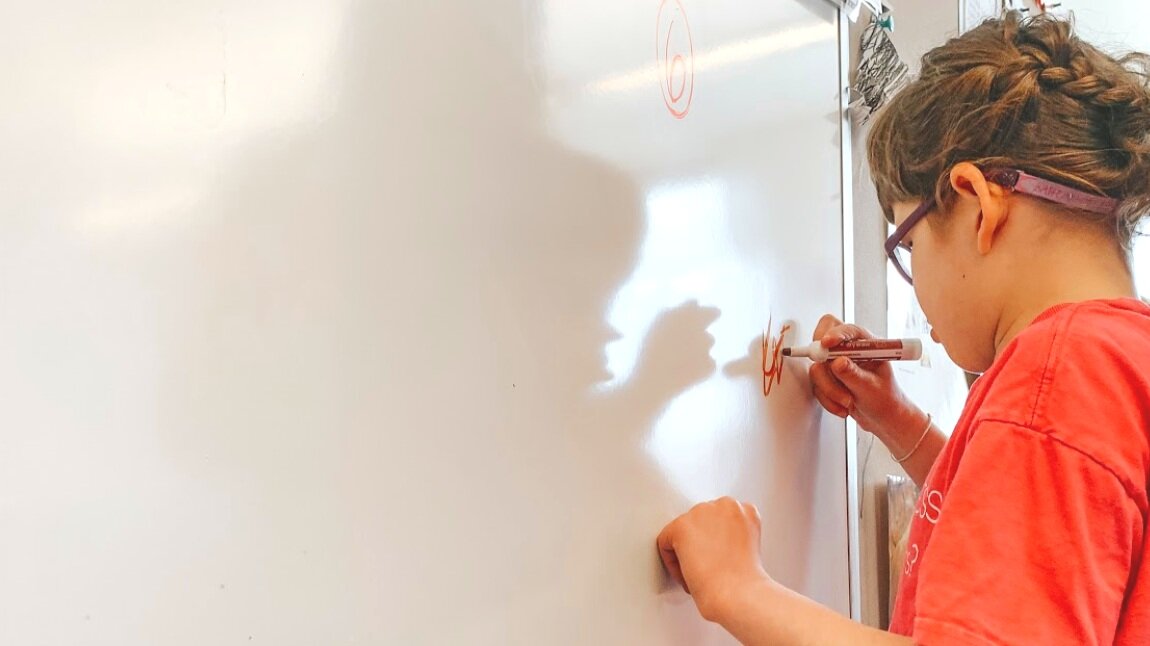This is part 4 of a 4-part series about inclusion. It won’t make much sense unless you’ve already read the first three parts. Click to go back to part 1 here, part 2 here, or part 3 here.
In my last post, I was telling you about a certain calculation. Of the time during Tess's day. And you'll recall that she's supposed to have 75% of her day with her classmates, and the other 25 is reserved for her special ed time. And we were getting these messages about her bus ride to and from swimming on Tuesday and the time in that pool. And how even though she wasn't with a single mainstream peer, the school was counting all of that time toward the 75%. Their logic was that swimming takes place in a public school, so it's all mainstream time.
We pushed back. We were like: nah, that doesn't make sense. A series of emails ensued. It turned out Yvonne wasn't the one taking the stand. She was repeating what someone else had said, a board certified behavior analyst, or BCBA, who works at the school. Our response was: we don't care who is saying this—it's wrong.
Side note but not really a side note—you may have heard this phrase, “disagree without being disagreeable.” It's what we try to do in all our dealings with the school. We wouldn't have it any other way. My wife and I will not let things go, and we will fight for Tess's rights if we need to, but we certainly don't want to go to war with the good people who work with her every day.
Side side note—this attitude leads to increasingly polite and almost ridiculously sweet tones of voice from both sides in these email exchanges, as we go along in more messages there is a marked increase in smile emojis and exclamation points, the nice kind not the angry kind, and after a while, when you sit back and look at what we are saying and what they are saying and the disagreements, everything reads more like a love letter and the whole thing is rather amusing really.
ANYWAY, the good news is that after multiple back and forths between us and Yvonne relaying the philosophy of the BCBA, suddenly into the middle of the exchange bursts Mike, of all people. Mike, you’ll recall, is the name we're using for the special education director for our district. And Mike says in his message that the pool transport and time does not count as the 75 but as part of the 25. In short, he agrees with us.
The purpose of all of this, as I've been saying, is so that Tess is included. We want to see Tess relate to others. Have them relate to her. And have. Some. Friends. I've done a lot of episodes over the years about this. There was the time before she really got started with school, when she had to qualify for state services and I had to answer aloud in response to a multiple choice question: "D. Tess has no friends." There was the time when I went into her classroom at one point and it seemed like some kids were doing the mascot thing with her. Doing some “awww” and “she's so cute,” and treating her like a baby, even though she was the same age they were.
And now here we are.
The real question for us is: how do her classmates see her?
And in a wonderful chain of events recently, we were able to find out exactly that. It happened because my wife volunteered to chaperone Tess's class's field trip to an art museum. My wife purposely didn't go as Tess's mom. She went as a chaperone, so Tess could have her ed tech with her, and my wife was able to let Tess be free to do her thing. This is what happened. Tess's friends made themselves known. Over and over throughout the field trip. My wife saw them interact with our girl. Talk to her. Hang out with her on purpose.
Tess can feel this. She's never said a word about it. But she knows when people are near and she likes it a lot. Around Tess's wrist is a friendship bracelet someone made for her. And my wife got to meet the girl who'd given it to Tess.
They don't see her as a mascot. They don't treat her like a baby. When you are in fourth grade, you are beginning to do some of the things you will do more as you grow up. You are writing things. You begin to take a foreign language. You take on more responsibility for yourself. It is a challenging but beautiful time. I can only imagine how dizzying this year might seem for some of Tess's classmates as they navigate fourth grade. But I am encouraged to hear that, though they aren't inviting her to stuff these days, they still see Tess. Whatever else is going on in their busy lives, they take time and see her.
